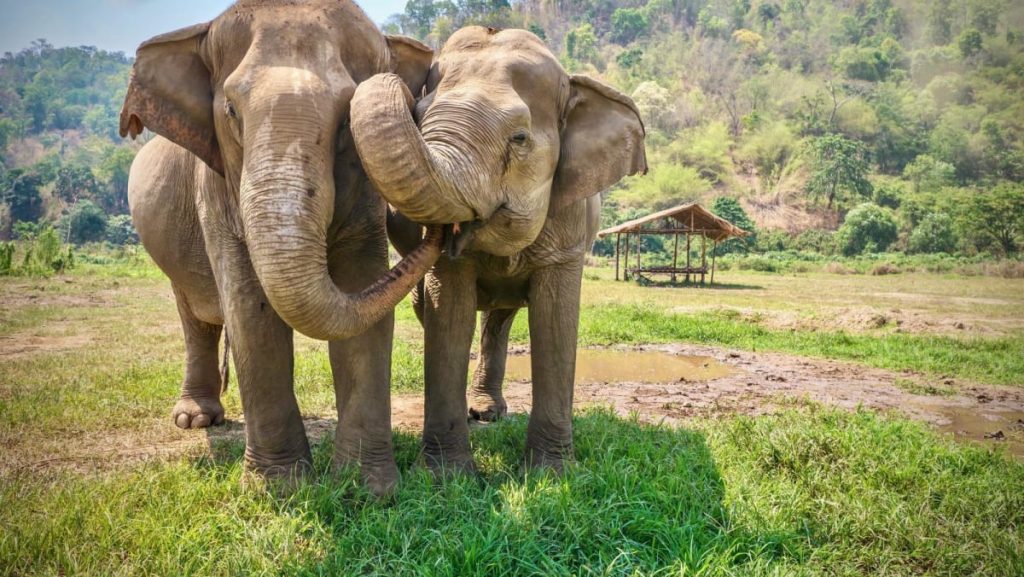The tragic death of a 22-year-old Spanish tourist, Blanca Ojanguren García, at an elephant sanctuary in southern Thailand has cast a somber light on the complex relationship between humans and these majestic creatures, particularly within the context of tourism. While bathing elephants remains a popular tourist activity, this incident underscores the potential dangers and ethical concerns associated with such close interactions, raising questions about the well-being of captive elephants and the safety of tourists.
García, a law and international relations student from Valladolid, Spain, was visiting the Koh Yao Elephant Care Centre in Phang Nga province with her boyfriend when the tragic accident occurred. She was washing an elephant when the animal, described by local authorities as “panic-stricken,” struck her with its trunk and tusk, resulting in fatal injuries. Local police chief Jaran Bangprasert confirmed the incident, while experts, quoted in local media, attributed the elephant’s behavior to the stress of living in captivity and interacting with tourists outside its natural habitat. This highlights a crucial aspect of the debate surrounding animal tourism: the potential psychological impact on animals forced to live in unnatural environments and engage in activities contrary to their natural instincts.
The incident has sparked international attention, with Spanish Foreign Minister Jose Manuel Albares confirming the tragic death and offering consular assistance to García’s family. The Spanish Consulate in Bangkok has been actively involved in providing support to the grieving family. This tragedy underscores the need for greater awareness among tourists about the potential risks associated with wildlife tourism and the importance of choosing ethical and responsible operators. While the desire to experience close encounters with exotic animals is understandable, it’s crucial for tourists to prioritize the animals’ welfare and safety, as well as their own.
The incident also brings into focus the larger issue of elephant tourism in Thailand. With approximately 2,800 elephants held in captivity for tourism purposes across the country, according to World Animal Protection, the practice has become widespread. While some sanctuaries promote themselves as ethical and focused on conservation, the reality for many captive elephants involves daily interactions with large numbers of tourists, often in activities that may cause them stress and discomfort. Bathing elephants, in particular, has been flagged by animal rights groups as a potentially harmful practice. The unnatural environment, the constant human presence, and the forced participation in activities can contribute to psychological distress in these intelligent and social animals.
This tragic event echoes previous incidents involving elephants in Thailand, highlighting the inherent risks associated with human-wildlife interactions, even in seemingly controlled environments. According to the Department of National Parks, Wildlife and Plant Conservation, wild elephants have been responsible for the deaths of 227 people, including tourists, over the past 12 years. While encounters between villagers and wild elephants are relatively common, attacks within sanctuaries are less frequent. However, this incident serves as a stark reminder that even in captivity, elephants retain their wild instincts and can react unpredictably, especially when stressed or agitated. It emphasizes the need for stringent safety protocols and better understanding of elephant behavior within the tourism industry.
The death of Blanca Ojanguren García serves as a tragic reminder of the complexities and potential dangers of wildlife tourism. This incident calls for a critical examination of the industry and its practices, emphasizing the importance of prioritizing animal welfare and ensuring responsible tourist behavior. While the desire for close encounters with these magnificent creatures is understandable, it is essential to balance this with a deep respect for their natural instincts and a commitment to their well-being. This tragedy underscores the urgent need for greater awareness, stricter regulations, and a shift towards more ethical and sustainable tourism practices that prioritize the long-term health and happiness of these magnificent animals over short-term entertainment.










